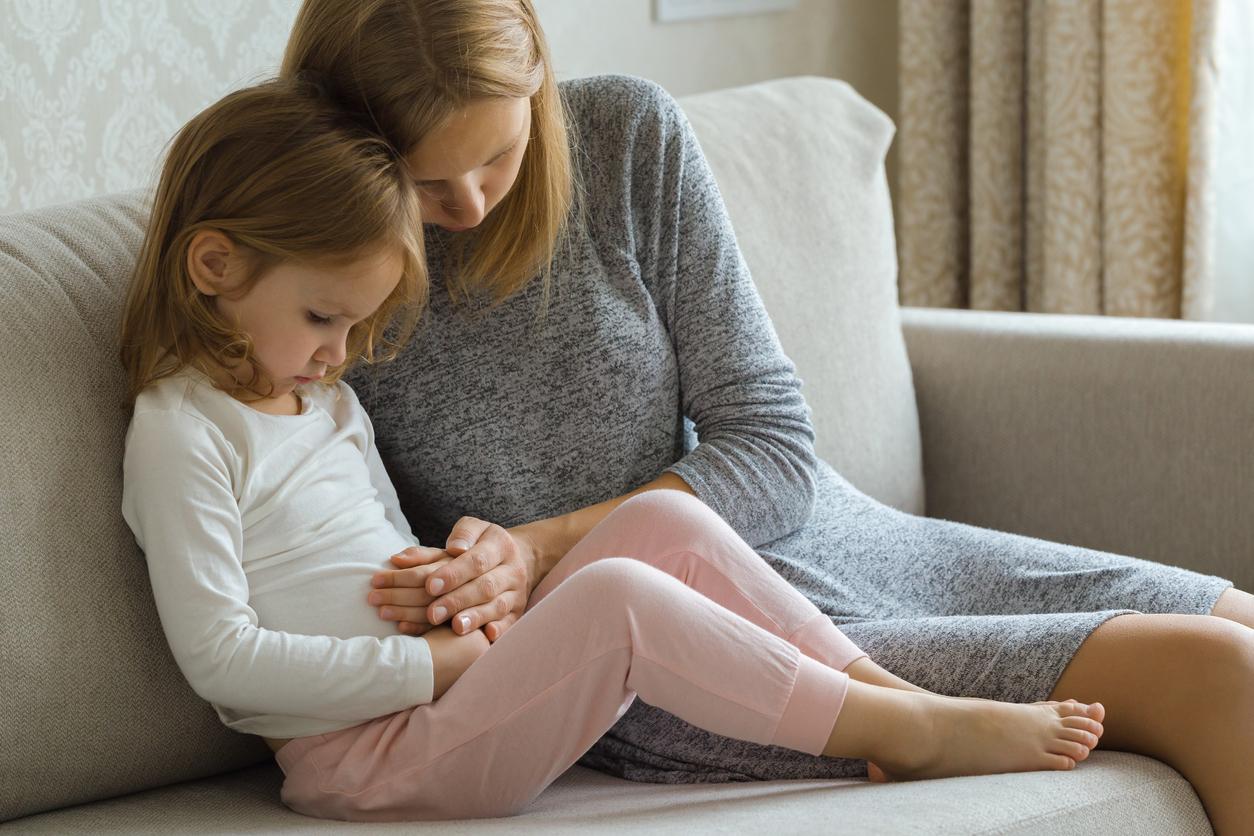According to an American survey, parents do not always consult a doctor to determine if their child’s stomach aches are a sign of something serious and to find out how to relieve them effectively.

- 1 in 6 parents say their child has a stomach ache at least once a month, but many haven’t seen a doctor, according to a US survey.
- Only 1 in 3 parents are very confident in their ability to identify serious abdominal pain.
- Experts recommend always calling a doctor if the pain is intense, frequent or disrupts the child’s daily life.
Abdominal pain is common in children: one parent in six said in a new poll that her child suffered from it at least once a month.
And while it can sometimes be difficult to know if it’s a passing pain or a cause for concern, not all parents seek professional advice when their child’s stomach aches become regular.
Stomach pain: consulting a doctor is often necessary
However, stomach aches can be a symptom of a range of health problems, reminds pediatrician Susan Woolford, co-director of the survey conducted by CS Mott Hospital, Michigan in the United States:
“In some cases, abdominal pain is an important sign of more serious problems such as appendicitis, bowel obstructions, urinary tract infections and, for boys, testicular problems such as hernias“said Ms Woolford.
“If a child experiences intense, frequent or disruptive pain, it is always best to err on the side of caution and call the doctor“, recommends the expert.
Stomach aches: parents do not always know how to spot serious signs
Many parents interviewed were unsure if they could recognize a serious problem. Indeed, according to the survey, which is based on 1,081 responses from parents of children aged 3 to 10, only one parent in three is sure to know when this can be a sign of a serious disorder.
Nevertheless, most parents said they would be very likely to contact their child’s doctor or seek emergency care if their child’s abdominal pain is accompanied by blood in the stool (84%).
In addition, about 65% would call a doctor if the child has “sharp” knife-like pain, if the pain lasts for more than six hours (64%), or if the belly is swollen (63%) or hard (49%).
Parents’ strategies for relieving a child with a stomach ache
To manage their children’s stomach aches, parents adopt different strategies depending on their opinion on the matter.
When they think that worry or anxiety is the cause of the stomach pain, most of them (71%) approach the situation by talking to the child about the cause of their anxiety, while others (53%) help him by having him do breathing or relaxation exercises or by trying to distract him.
16% of parents allow their child to miss school or other activities related to their worry.
Stomach pain: beware of over-the-counter medications
Among other information from the survey, we learn that almost a third of parents are very likely to give an over-the-counter product when their child has a stomach ache, including probiotics, stomach pain medication, painkillers or stool softeners.
Which is not always a good idea: “While some products can relieve the child’s discomfort, others can be counterproductive.”, warns Dr. Woolford.
For example, the active ingredient in some stomach-ache medications is bismuth, which slows the motility of the intestine. Although this can be useful to limit the progression of diarrhea, it can slow the healing process of a viral infection and lead to constipation in children, can we read in EurekAlert, who relays the survey.
“Parents naturally want to relieve their child’s pain, but they need to understand the pros and cons of different remedies to ensure that medication improves the condition and does not make it worse.“said Ms Woolford.
















